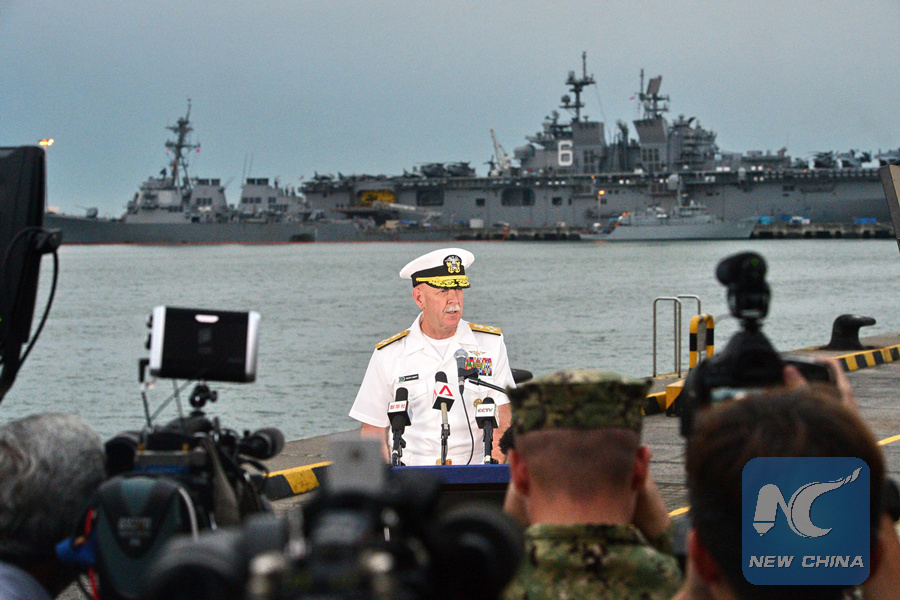
Admiral Scott Swift, commander of the U.S. Pacific Fleet, speaks to reporters during a press conference, as the guided-missile destroyer USS John S. McCain is seen in the background, at Changi naval base in Singapore on August 22, 2017. (AFP PHOTO)
MOSCOW, Aug. 22 (Xinhua) -- If the U.S. Navy causes a more serious accident in narrow places of the Strait of Malacca, navigation in the important cargo passage will be disrupted, a Russian expert commented Tuesday on a recent U.S. destroyer collision.
The guided-missile destroyer USS John S. McCain collided with a merchant vessel on Monday morning near the Strait of Malacca, leaving 10 sailors missing and five others injured.
"The collision was precisely caused by the overstrain of the U.S. Navy," Vasily Kashin, a research fellow at the Institute of Far Eastern Studies of the Russian Academy of Sciences, told Xinhua.
He said U.S. warships spend too much time on combat service and the crew are overworked. There is not enough time to perform necessary exercises and training programs.
"The U.S. Navy keeps almost all of its vessels -- almost everything that can float -- on the high seas, and uses a maximum percentage of technically-sound ships," Kashin said.
Maritime accidents are frequent in the Asia Pacific as there is no other place with an equal concentration of U.S. warships, a comparable scale of commercial navigation and other types of maritime activities, Kashin said.
The McCain is the fourth U.S. Navy ship involved in such an accident in 2017.
In January, the USS Antietam ran aground, dumping 1,100 gallons of hydraulic fluid into Tokyo Bay.
In May, the guided-missile cruiser USS Lake Champlain collided with a South Korean fishing vessel off the Korean Peninsula.
In June, the USS Fitzgerald collided with a container ship in waters off Japan, leaving seven sailors dead.

